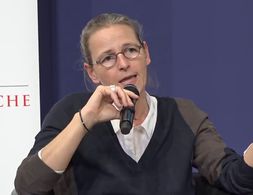5 results
In 18th century Europe figures such as Adam Smith, David Ricardo, Friedrich List and Jean Baptiste Colbert developed theories regarding international trade, which either embraced free trade seeing it as a positive sum game or recommended more cautious and strategic approaches to trade seeing it as a potential danger and a rivalry and often as a zero-sum game. What about today?
Quelles sont les opportunités et quels sont les risques des accords commerciaux de nouvelle génération négociés actuellement par l'UE (CETA avec le Canada, JEFTA avec le Japon,...) ?
Cécilia Bellora, économiste et ingénieure agronome, CEPII Karine Jacquemart, directrice générale, Foodwatch (sous réserve) Charles de Marcilly, responsable du bureau de Bruxelles, Fondation Robert Schuman Katheline Schubert, professeure d’économie, Université Paris 1 Panthéon Sorbonne - PSE Modération : Dominique Rousset, journaliste à France culture
Trade disputes are usually understood as conflicts between countries with competing national interests, but as Matthew C. Klein and Michael Pettis show in this book, they are often the unexpected result of domestic political choices to serve the interests of the rich at the expense of workers and ordinary retirees.
What are the challenges and opportunities for achieving decent work in global supply chains How do transnational corporations and their global supply chains operate How can they be more effectively governed Mark Anner Esther Busser Michael Fichter Tandiwe Gross Frank Hoffer Jenny Holdcroft Praveen Jha Maité Llanos Adam Lee Victor …
From the mercantile monopolies of seventeenth-century empires to the modern-day authority of the WTO, IMF, and World Bank, the nations of the world have struggled to effectively harness globalization's promise. The economic narratives that underpinned these eras the gold standard, the Bretton Woods regime, the "Washington Consensus" brought great success and great failure.
Nous utilisons des cookies sur notre site Web. Cliquez sur Accepter pour nous aider à améliorer constamment Exploring Economics !





